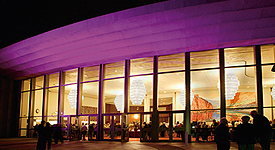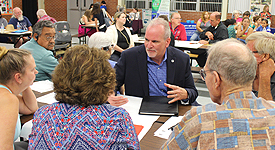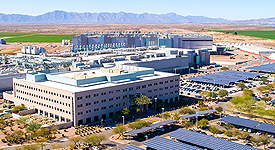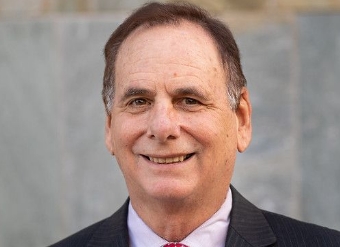Where do the fats, oils, and grease (FOG) originate that accumulate in the sanitary sewer system that conveys and the treatment plants that receive wastewater?
FOG is a natural by-product of cooking and food preparation, the sources include meat fats, dairy products, food scraps, cooking oils, baked goods, sauces, dressings, sandwich spreads, gravies, marinades, shortening, lard, butter, and margarine. It can and does create sewer blockages that may lead to sewer back-ups. Worst-case scenario: it can cause sanitary sewer overflows, flooding of basements with sewage and hinder wastewater treatment.
The city has a FOG program facilitated by the Industrial Pretreatment Program (IPP) to reduce sewer backups and the amount of grease that enters the public-owned treatment water system (POTW). The IPP works to identify problem areas and educate the public about how they may be contributing to the grease problem that is seen in the POTW. The city can track the sources of FOG from a service area to a specific neighborhood and building that creates sewer blockages and back-ups by checking manholes and using closed circuit television inside wastewater pipes.
You can do your part to reduce the amount of FOG entering the sewer, by collecting grease in a can, cooling, and discarding it into the trash, instead of pouring it down the drain. Small amounts of grease can be frozen, covered, bagged, tied, and placed in your trash. Larger amounts of grease should be poured into a secured container and taken to the city's Household Hazardous Waste Collection Facility by appointment. Call 480-782-3510 to schedule. Also, use garbage disposals sparingly. Home garbage disposals do not keep grease out of the wastewater pipes. In fact, garbage disposals contribute to the problem. Food particles stick to the grease that clings to pipe walls and speed the blockage of pipes. Scrape plates into the garbage instead of the disposal and dry wipe greasy pans before washing them. Never use detergent or hot water to assist in moving FOG down the drain. Products such as detergents that claim to dissolve grease may pass the grease down the pipeline and cause problems elsewhere.
For leaks or pipe blockages requiring immediate attention during normal business hours, please call 480-782-3700 (Option 3, then Option 1). A city crew will come and determine whether the blockage is on your property or city property. If the blockage is on city property, the city will fix the problem. If the blockage is on your property, you will have to hire a plumber to fix the problem. Calls after business hours, should be directed to 480-782-4130.



